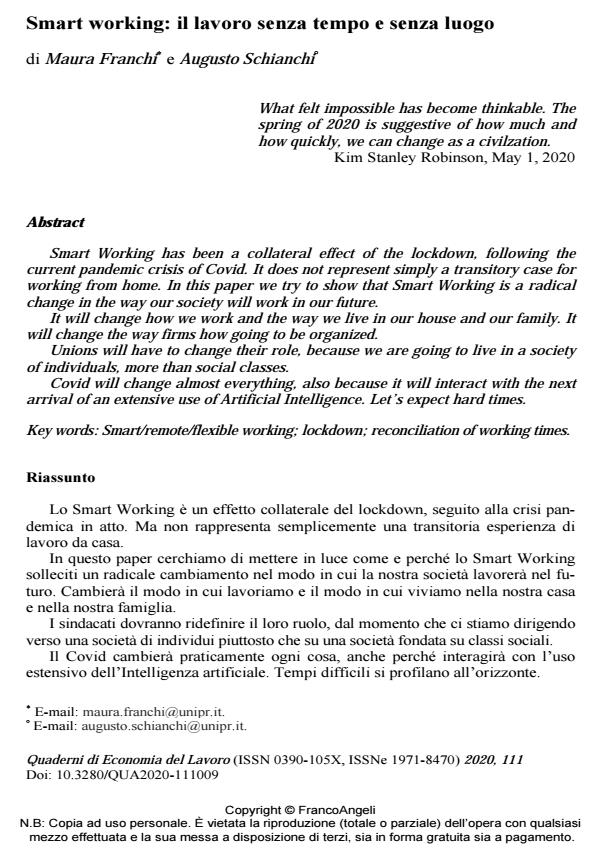Smart working: il lavoro senza tempo e senza luogo
Journal title QUADERNI DI ECONOMIA DEL LAVORO
Author/s Maura Franchi, Augusto Schianchi
Publishing Year 2021 Issue 2020/111
Language Italian Pages 22 P. 203-224 File size 214 KB
DOI 10.3280/QUA2020-111009
DOI is like a bar code for intellectual property: to have more infomation
click here
Below, you can see the article first page
If you want to buy this article in PDF format, you can do it, following the instructions to buy download credits

FrancoAngeli is member of Publishers International Linking Association, Inc (PILA), a not-for-profit association which run the CrossRef service enabling links to and from online scholarly content.
Smart Working has been a collateral effect of the lockdown, following the current pandemic crisis of Covid. It does not represent simply a transitory case for working from home. In this paper we try to show that Smart Working is a radical change in the way our society will work in our future. It will change how we work and the way we live in our house and our family. It will change the way firms how going to be organized. Unions will have to change their role, because we are going to live in a society of individuals, more than social classes. Covid will change almost everything, also because it will interact with the next arrival of an extensive use of Artificial Intelligence. Let’s expect hard times.
Keywords: Smart/remote/flexible working; lockdown; reconciliation of working times
- Innovazione tecnologica e lavoro agile: quadro evolutivo, dimensioni di sostenibilità e profili organizzativi Azio Barani, in QUADERNI DI ECONOMIA DEL LAVORO 114/2023 pp.187
DOI: 10.3280/QUA2021-114007
Maura Franchi, Augusto Schianchi, Smart working: il lavoro senza tempo e senza luogo in "QUADERNI DI ECONOMIA DEL LAVORO" 111/2020, pp 203-224, DOI: 10.3280/QUA2020-111009